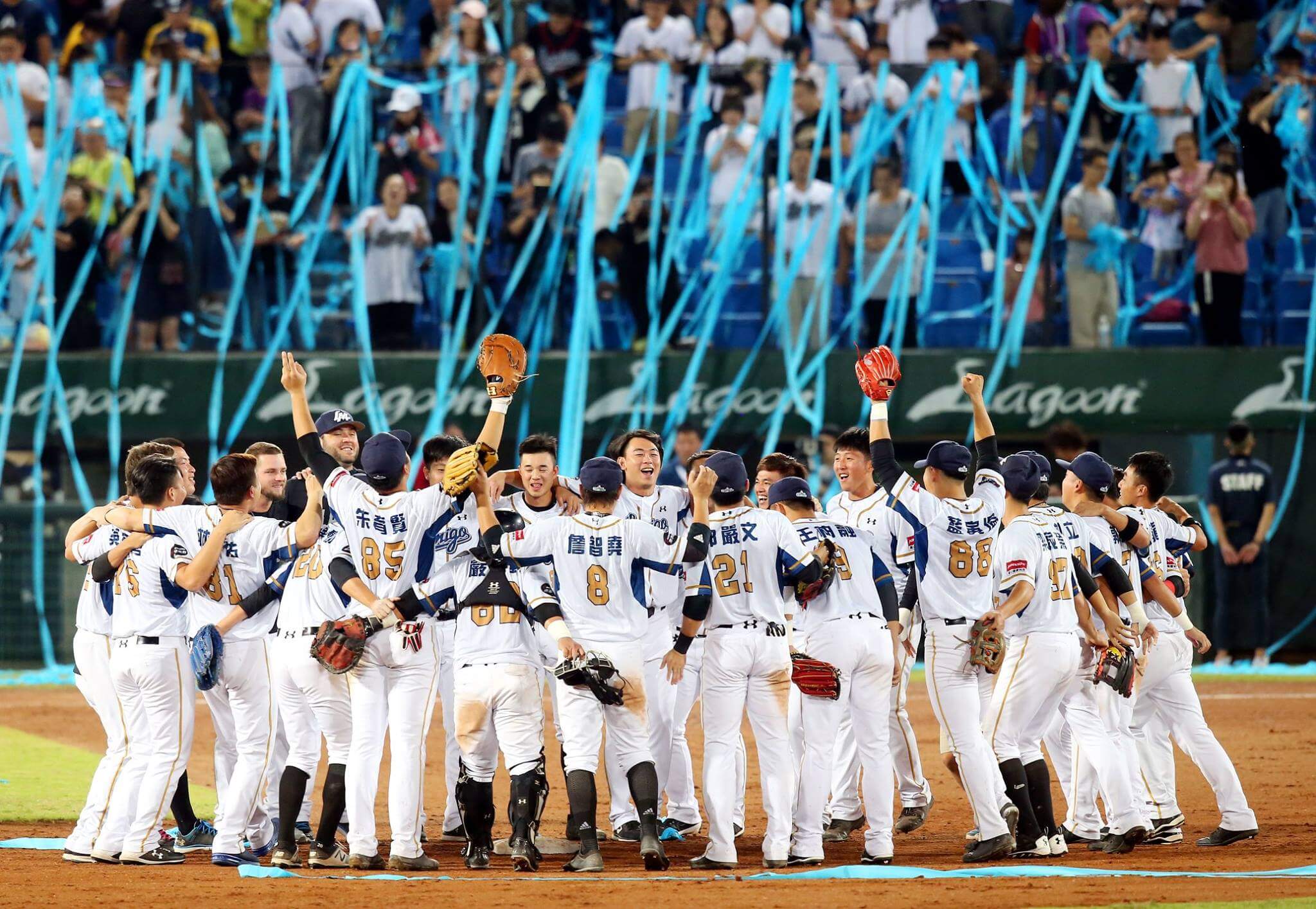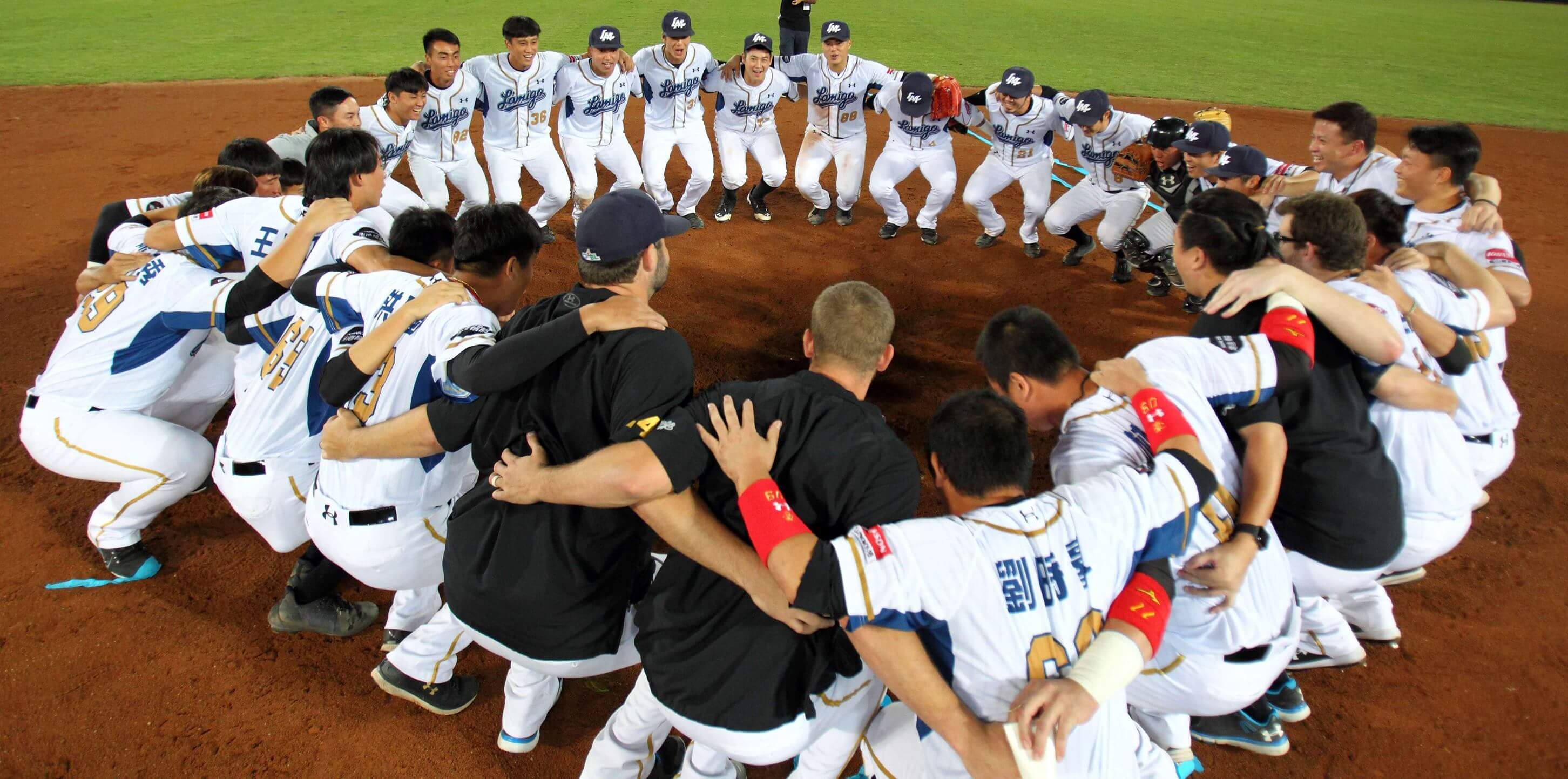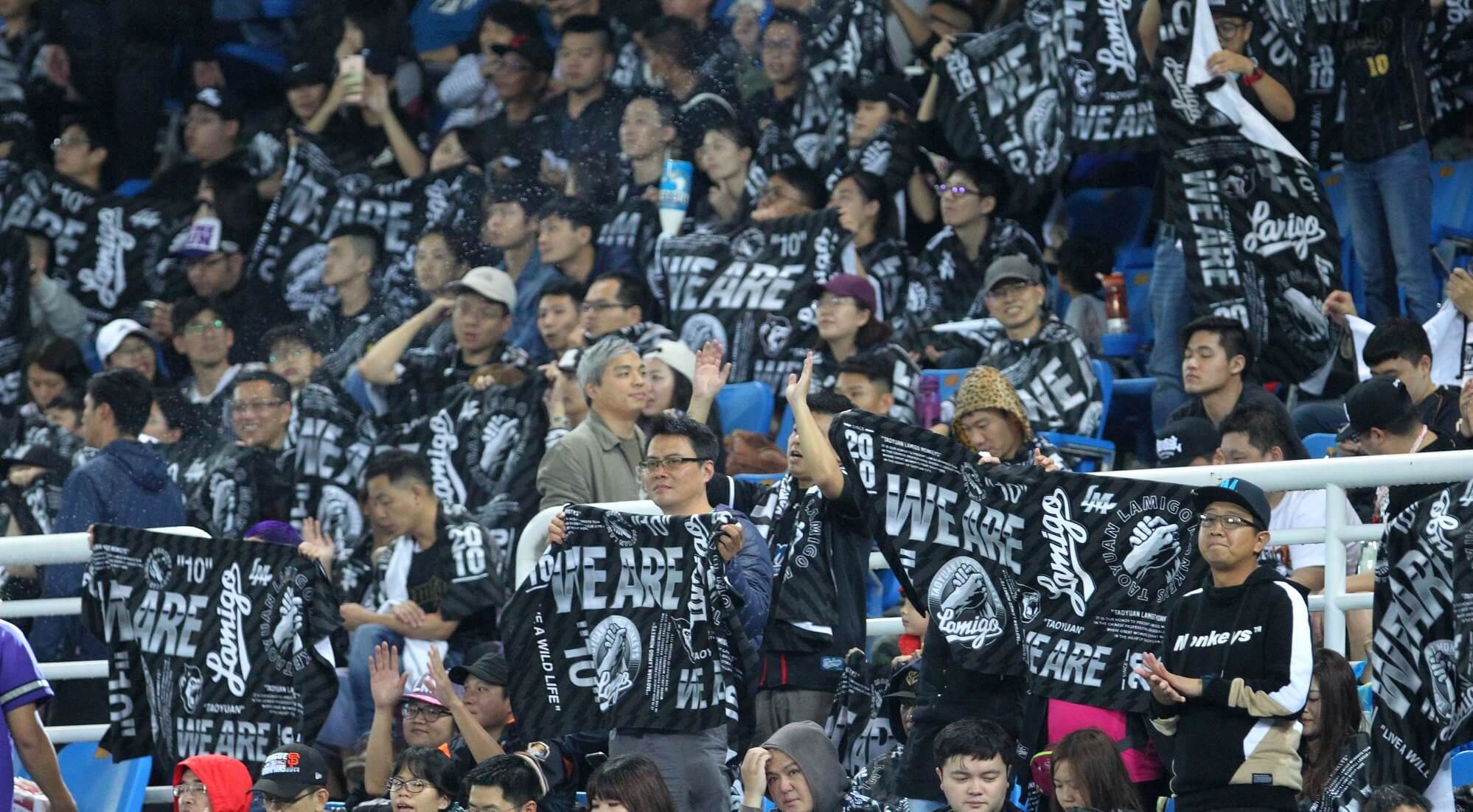Lamigo Monkeys for Sale After 16 Seasons in CPBL
We all know this day will come eventually, but nobody expects this to happen so soon. On the early morning of July 3, rumours began to circulate that the CPBL defending champions the Lamigo Monkeys are going to be up for sale.
Around 10:30 am, Taiwanese media outlets confirmed the news that the Monkeys are indeed going to sell their franchise. The Monkeys’ general manager will hold a press conference at 4 pm to talk about their decisions.

Monkeys’ Open Letter for Fans
At 1:30 pm, Justin Liu, the Monkeys’ general manager, posted a letter addressing to the fans on the team’s Facebook page.
He started by confirming they are putting the team up for sale. After 16 years, the resources and manpower required to improve the team have become increasingly difficult for a small and medium-sized enterprise.
For the long-term prosperity of the team, it is the best option to hand the team over to another enterprise that has access to more resources. Justin Liu finished the letter apologised to the fans and thanking them for their support in the past 16 seasons.
Monkeys’ Press Conference
At 4 pm, in front of all the Taiwanese media outlets, the Lamigo Monkeys’ general manager Justin Liu officially announced they have decided to put the team up for sale.
“Over the past 16 years, we went through the CPBL’s lowest point and participated in the growth of the league,” said the Lamigo Monkeys’ general manager Justin Liu. “However, with the rapid development of professional baseball, we realised we can no-longer keep up financially.”
Liu went on and told the media that the age of small and medium-sized enterprises operating CPBL teams has gradually come to an end. It is the main reason why they decided to sell the franchise at this time.
Get ready for the Historical moment. #CPBL #Lamigo pic.twitter.com/4Yoqmeri1a
— Kris (@kriswan1016) July 3, 2019
It’s a Money Burning Business
The Monkeys general manager mentioned every year, the team would require additional financial support from its parent company, around 3.2 million USD a year to cover the losses, which is quite a heavy burden for a relatively small company.
“The idea of selling the team has been on my mind in the past few years, but it is not the easiest thing to say,” said Justin Liu. “Whenever I see fans cheering for us at the game, it gave us more courage to continue.”
“This is not an announcement for team disbandment,” the general manager reiterated. “If we do not find someone to take over, we will continue to operate the team. It is business as usual until we have a buyer.”
When asked by the media about potential buyers, Liu stated there are no buyers at this stage. The Monkeys are leaving all the options open. He is not against the idea of selling the team’s naming rights or go down to the joint venture business model.
“We are very proud of this team. Our coaching staff, players and the marketing department are considered to be one of the best in this league,” said Justin Liu. “My only wish is for the team to remain in the city of Taoyuan even after the change in ownership.”
The Monkeys have dominated the CPBL in the past few seasons. The team have won five consecutive half-season titles and took home four Taiwan Series Championships in the past five seasons.

From Zero to Most Popular Team
Justin Liu took over the Monkeys as the general manager in 2012 at one of the lowest points in the team’s history. The league at that time just a few years out of the 2009 game-fixing incident. Average attendance at that time for the Monkeys was 2280 per game.
With his hard work, Justin Liu managed to turn the ship around and fundamentally changed how all the CPBL teams operate in terms of marketing. Fast forward to 2019, the Monkeys are now the most popular team in the CPBL with an average attendance around 7165 per game.

No Strong Financial Backing for Monkeys
Although they are the most popular team, at the end of the day it is still a money’s game. It is a harsh reality when it comes to running a professional sports team. Financially speaking, it is impossible for the Lamigo Monkeys to go toe-to-toe with the other teams in the league.
Apart from the Monkeys, the other four CPBL teams are all owned by the multi-billion conglomerates. To them, the cost of running a CPBL team is like pocket change. Below are the total assets ranking by each team’s parent company. It should provide some insight into the financial gap between the Monkeys and the other four teams.
Notes: The data below are not including subsidiaries. The number could be a lot higher for Fubon, CTBC, Uni-President and Ting Hsin. For example, Uni-President Enterprise also own Starbucks and 7-Eleven, but to keep things simple, we will not count those.
- Fubon Guardians: Fubon Financial Holding: 250 billion USD
- Chinatrust Brothers: CTBC Financial Holding: 190 billion USD
- Uni-Lions: Uni-President Enterprises Corporation: 13 billion USD
- Wei Chuan Dragons: Ting Hsin International Group: 9 billion USD
- Lamigo Monkeys: La New Corporation: 28 million USD
Notes: Fubon, CTBC and Uni-President data are based on Forbes’ 2018-19. Ting Hsin Group’s data are bit hard to find, it was mentioned in a news article from 2014. Since La New Corporation is not a public listed company, therefore the data is from Wikipedia.
Reactions From Other CPBL Teams
Uni-Lions’ general manager: It is challenging to operate a professional team, we sincerely thank the Lamigo Monkeys for jumping into CPBL 16 years ago when the league is at its lowest point. They have done a great job over the years and have set themselves as an example in this industry.
Fubon Guardians’ general manager: The Monkeys are a respectable ally in this league. We are very sorry to learn the news they are putting the team up for sale.
Chinatrust Brothers’ general manager: It is not easy to run a professional team, it is necessary to have plenty of passion and enthusiasm at the same time maintaining social responsibility. We are grateful to them for their efforts in recent years.
Wei Chuan Dragons’ general manager: We have a lot of respect for the Monkeys’ operational model. Perhaps a joint-venture option is available to retain the Monkeys’ existing business model? The Monkeys have made a lot of contributions to Taiwan Baseball over the years, and it is hard to see them leave.
Potential Buyer: Shin Kong Group
Early rumours suggested the new potential buyer of Lamigo Monkeys could be the Shin Kong Group (新光集團). Here is a little background on them, they are a multi-billion conglomerate operating in finance, insurance, technology, manufacture, retail, energy and the medical sectors in Taiwan.
When asked by the media, both the Lamigo Monkeys and the Shin Kong Group denied the rumours. However, according to SET News, the owner of Shin Kong Group already have the plan to get into professional baseball.
The Shin Kong Group has been one of the Monkeys major sponsors in the past three seasons. The advertising cost is said to be around $670,000 USD per year.







Running a professional baseball team is an expensive proposition. While some of the wealthiest teams, like the Yomiuri Giants, are almost certainly profitable on a year to year basis, particularly when you factor in the advertising value the team generates. However, for a majority of teams, annual profits are typically made only when the team plays exceptionally well and is drawing exceptionally well. Most of the real money made in professional baseball is the appreciation of the franchise over time, which is only realized when a new ownership group comes in and buys the team for a lot more than what the selling ownership group paid for the team years or decades earlier.
It will be interesting to see what Lamigo receives for selling the Monkeys. Particularly in Asian baseball, where corporate ownership is the norm, teams are worth more to big corporations that can capitalize on the publicity/advertising value of owning a team much more than smaller corporations. One of the reasons MLB teams have more money to spend on players is that because there is no corporate ownership, teams can auction off things like naming rights, who gets to sell beer at the ball park, and other advertising rights to the highest bidder. Thus, revenue streams for MLB teams are higher. Of course, that does not mean that Asian teams aren’t worth a great deal in terms of advertising and good will to the corporations that own the teams.
I’m sure they will find a new buyer. If any conglomerate wish to get into CPBL, buying Lamigo Monkeys would be the best option rather than forming a new team from scratch.
The Monkeys already well established in the city and have a strong fan base due to their localisation marketing approach. Also, the new buyer will be buying an extremely competitive team (5 consecutive half-season titles, and won 4 Taiwan Series in the past 5 seasons). Another huge benefit will be, can start generating money right away, no need to wait a year in the farm team like the Wei Chuan Dragons.
As for Monkeys’ claim that they’re making a 3.2 million in losses every year? I put a question mark on it. I think they are exaggerating a bit. 3.2 million loss per year back in CPBL dark age, yes I believe them. But from 2013 to 2018? I highly doubt that. I’ll need put on my armchair accountant cap and need to do some research and calculations on that maybe in another future blog post. The numbers just doesn’t add up from looking at the surface.
If I have to take a guess now, I think the Monkeys can probably sell their franchise for around 17 million to 23 million. But again, a team is only worth what a buyer is willing to pay. Would be interesting to see how it develop down the line.